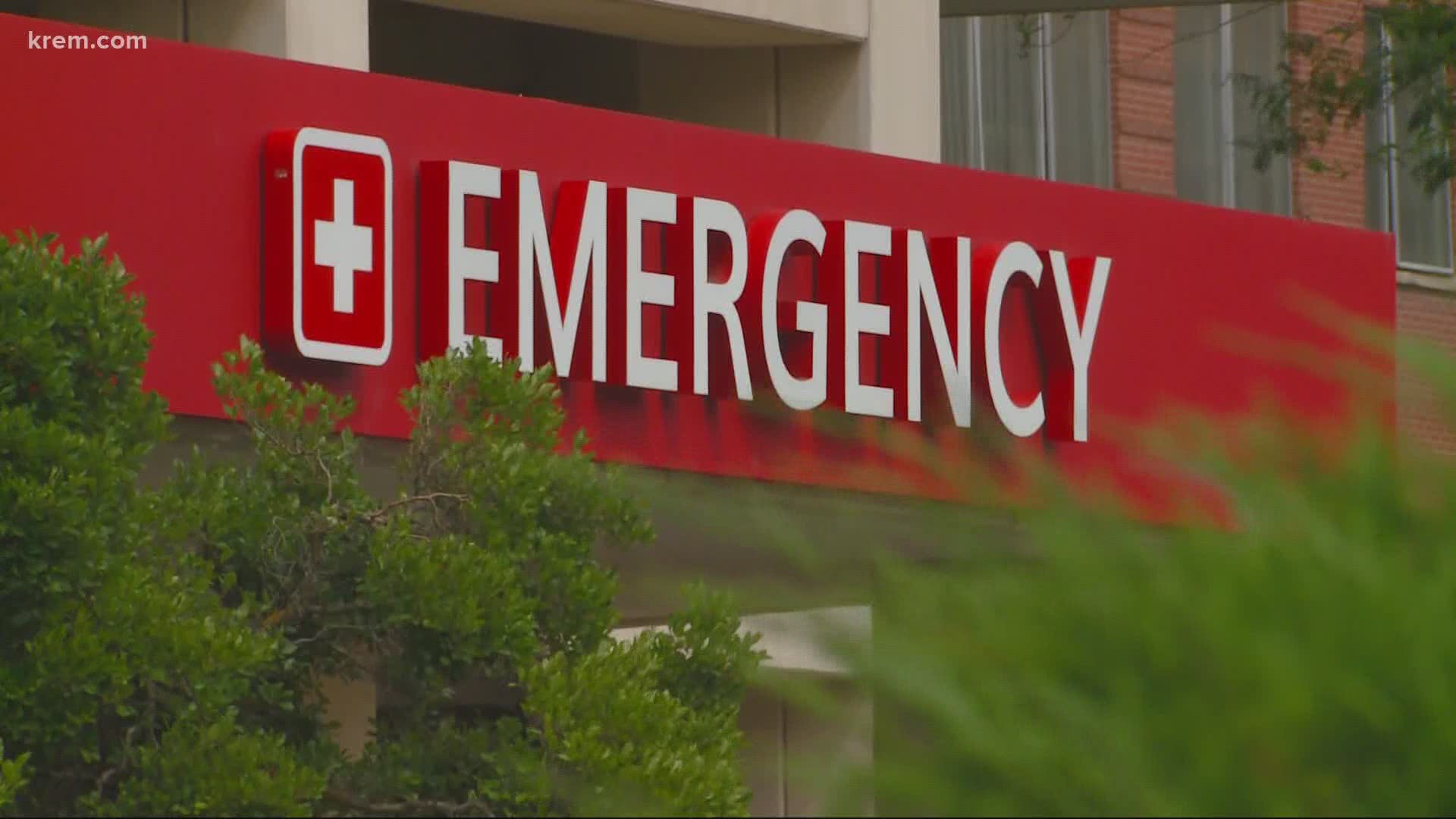SPOKANE, Wash. — On Thursday, Spokane County reached 6,693 confirmed cases of coronavirus since county saw its first case on March 14.
The Spokane Regional Health District reported 112 new cases Thursday as part of a spike after Labor Day, which is worrying public health leaders and hospital workers alike.
During the COVID-19 pandemic, 162 Spokane County residents have died and 414 total people have spent time in a Spokane County hospital.
The battle against the virus has thrust healthcare workers into the national spotlight, with many people praising their work as heroic as they treat those infected with the highly contagious illness.
Stacy Kitchens, a charge nurse in Spokane's Multicare Deaconess Hospital's Emergency Room, is one of those healthcare workers.
Kitchens spoke with KREM's Whitney Ward about how different her work has been since the pandemic started and what it has been like treating those infected with the coronavirus.
The following is a transcript of their conversation.
Stacy Kitchens: "Definitely it's a lot different. We wear our own personal masks into the building, and then we put on our surgical, healthcare masks as soon as we clock in. We take our own temperature checks before we start our shifts. We scan all the visitors before they come in, and screen them, take their temperatures."
Whitney Ward: "Do you think there are some things you've had to adapt to that will probably never go back to the way they were?"
Kitchens: "Yeah, I'm not sure if we'll ever not be wearing masks. At this point, I can just see us wearing them from now on. We've just taken everything to the next level, the way we sanitize, the way we clean, the way we think about things, interact with patients. It's all different. I don't think it will ever be the same. This has changed us, and hopefully for the better, just in the future to keep things from spreading."
Ward: "As the charge nurse, have you seen colleagues who have struggled with some of these COVID patients, or just the stress of what it has all meant?"
Kitchens: "We have coworkers that have their own health issues that are scared to come to work. We have pregnant nurses that are scared. They don't know what the right choice is. They want to be here. Nurses are drawn to help people. We want to take care of these patients, but at the same time, you have to take care of yourself to be able to do that. I think that's been really scary and very challenging for quite a few people."
Ward: "Do you have to assume everyone is contagious, if you don't know for sure?"
Kitchens: "Oh yeah, definitely. Definitely."
Ward: "Are they completely secluded from their loved ones? How do you handle that?"
Kitchens: "I think that's the hardest part is not having your family and your loved ones with you at your bedside. We all want people there with us as a support person, even just to keep us company in those rooms. So I think that's the hardest for the family members ... but that's also where the nurses can come in, because we do more than just procedures and medications. We're there to comfort them, hold their hand, talk to them, and meet them where they need us to. But of course we've seen some people come in, usually they come in in respiratory arrest, and we're just not able to save them, unfortunately. And that's really hard."
Ward: "When you see something like that, is it hard to go outside and see people not taking it seriously?"
Kitchens: "Yeah, it is hard. Everybody needs to take it seriously. People's lives are being changed, and they're going to be affected from now on. But all I can do is do the best that I can, to tell people, and be a role model in the community."

